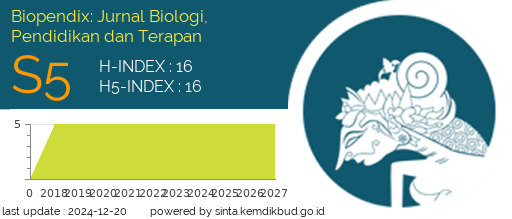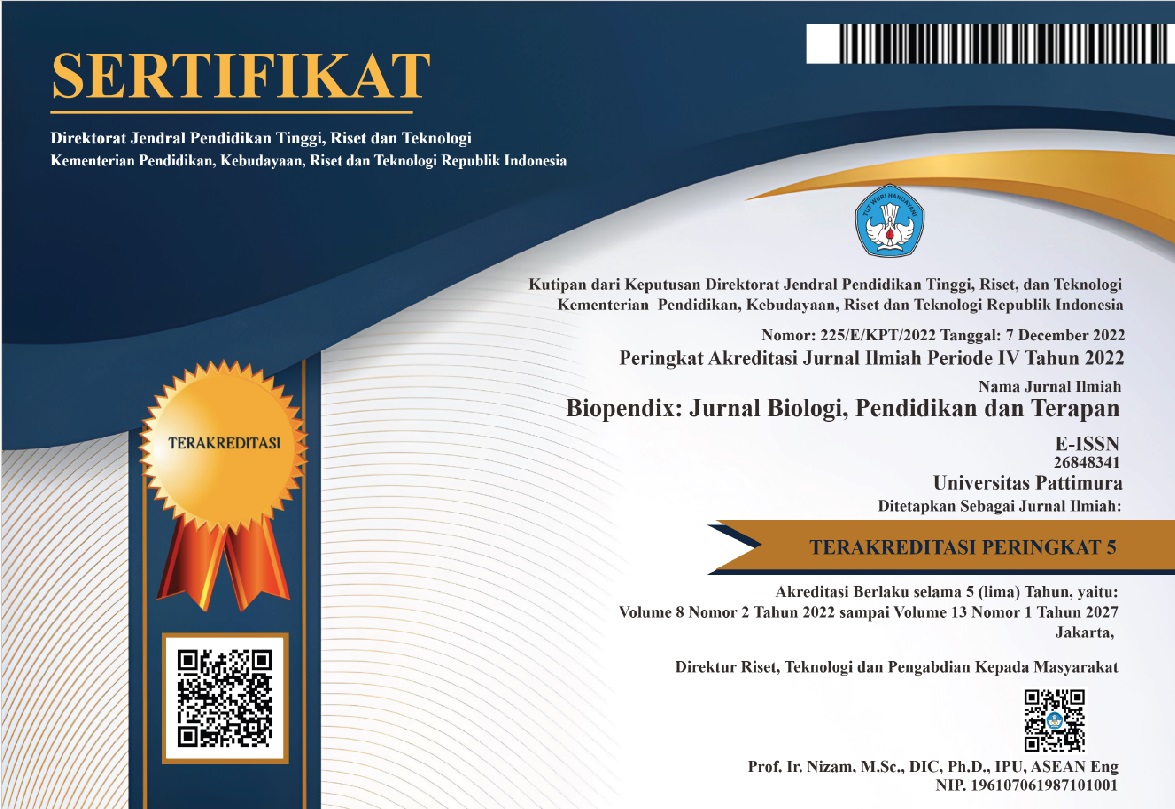ANALISA TOTAL BAKTERI PADA IKAN TUNA ASAP YANG DIRENDAM DENGAN ASAP CAIR “WAA SAGU†SELAMA PENYIMPANAN PADA SUHU KAMAR
Abstract
Backgroud: During this traditional way of preserving fish is usually done by fumigation but is now developed another preservation method that uses liquid smoke method.
Method: Liquid smokes used in this study are from the liquid smoke “waa sago†with concentration 5% + NaCl 5%, soaked 10 minute, the type of fish used tuna (Thunus sp). Meat tuna soaked in liquid smoke and stored for 10 days at room temperature. This study aimed to determine the microbiological quality (total plate count), soaked smoked tuna with liquid smoke "waa sago" during storage at room temperature.
Result: Results of analysis of total bacteria in smoked tuna still eligible SNI and safe and suitable for consumption. Liquid smoke "waa sago" can extend the shelf life of tuna fish for 10 days at room temperature. Liquid smoke has antibacterial properties more easily applied and more secure than conventional smoke and tar fraction containing aromatic hydrocarbons have been separated, so that the products are free polutean liquid smoke and carcinogens.
Conclusion: Total bacteria in tuna, marinated with liquid smoke waa sago stored for 10 days, still meets ISO standards. Liquid smoke from sago waa potential as an antibacterial because it can maintain the quality of smoked tuna microbiologically during storage at room temperature.
Downloads
Authors who publish with this Journal agree to the following terms:
- Author retain copyright and grant the journal right of first publication with the work simultaneously licensed under a creative commons attribution license that allow others to share the work within an acknowledgement of the work’s authorship and initial publication of this journal.
- Authors are able to enter into separate, additional contractual arrangement for the non-exclusive distribution of the journal’s published version of the work (e.g. acknowledgement of its initial publication in this journal).
- Authors are permitted and encouraged to post their work online (e.g. in institutional repositories or on their websites) prior to and during the submission process, as it can lead to productive exchanges, as well as earlier and greater citation of published works





 2
2






